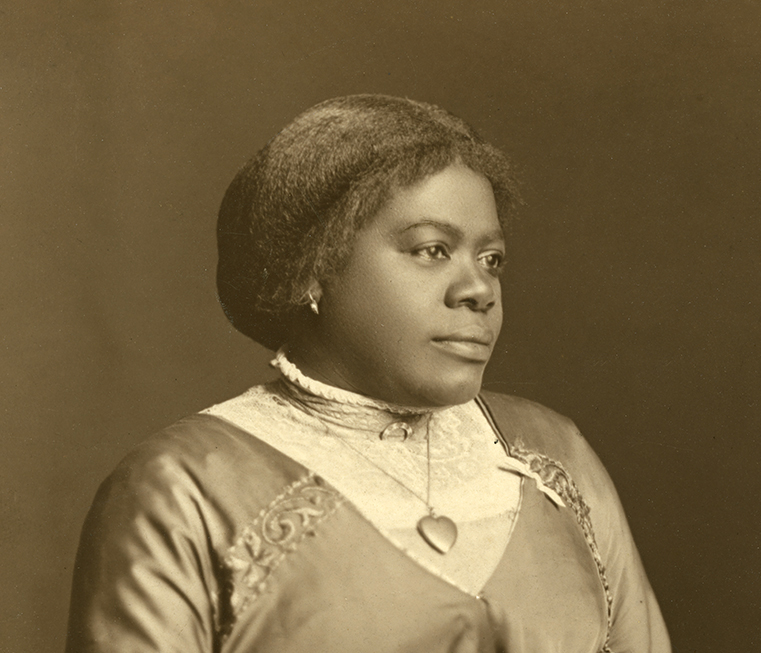
The passing of Bernice Johnson Reagon on July 16, 2024, at the age of 81, marked the end of an extraordinary life dedicated to social justice, music, and the preservation of African American cultural heritage. A singer, composer, professor of American history, and a revered curator at the Smithsonian, Reagon’s influence resonated deeply across multiple spheres, leaving an indelible mark on the Civil Rights Movement and beyond. Her powerful contralto voice, her unyielding commitment to activism, and her profound scholarship collectively forged a path for understanding and enacting change through the universal language of song.
Born into the deeply musical traditions of the rural South, Reagon understood from a young age the inherent power of collective singing to unify and uplift. She transformed this understanding into a lifelong mission, actively shaping the soundtrack of pivotal moments in American history and ensuring that the voices of the marginalized were not only heard but amplified. Her work with the Freedom Singers and the iconic Sweet Honey in the Rock became synonymous with the spirit of protest and resilience, providing comfort, courage, and a shared sense of purpose to countless individuals facing adversity.
Beyond her compelling performances, Reagon was a rigorous scholar who meticulously documented and interpreted the role of music in African American life and social movements. Her academic contributions at institutions like Howard University and American University, coupled with her curatorial efforts at the Smithsonian, cemented her status as an authoritative voice in cultural history. Through her artistry and intellect, Bernice Johnson Reagon crafted a legacy that continues to inspire, reminding us of music’s profound capacity to catalyze, sustain, and archive the ongoing human struggle for freedom and justice.
1. **Early Life and Formative Musical Roots in Dougherty County, Georgia**Bernice Johnson Reagon was born on October 4, 1942, in Dougherty County, Georgia, a setting that profoundly shaped her early life and musical sensibilities. She was the daughter of Beatrice Wise Johnson and Jesse Johnson Sr., a Baptist minister, which meant that church and school were central, integrated parts of her upbringing, with music heavily intertwined in both. This environment naturally fostered an early immersion in a rich musical culture, primarily a cappella, as her church did not have a piano.
Her first instruments, as she would explain, were her hands and feet, which she found to be the only comfortable way for her to create music. This foundational experience in percussive, vocal-based music would later define her signature style and the sound of the groups she led. She recounted how her early schooling also involved music, with teachers leading students in singing games that utilized voices, hands, and feet, further embedding the communal and physical aspects of music-making into her consciousness.
Remarkably, Reagon’s intellectual capabilities were evident from a very young age; she began school at three years old and by the 4th, 5th, and 6th grades, she was requested to tutor students in the 1st, 2nd, and 3rd grades, a testament to her early academic prowess in a setting with limited teaching staff. This blend of strong intellect and deep musical roots laid the groundwork for her future as both a scholar and an artist, with her favorite childhood quartet being the Five Blind Guys and her musical role models including Harriet Tubman, Sojourner Truth, and Bessie Jones, who, to her, represented traditional singing and the fight for justice.

2. **Founding Member of the Freedom Singers and Early Civil Rights Activism**Reagon’s journey into activism began in earnest in 1959 when she entered Albany State College (now Albany State University), where she not only pursued her study of music but also became deeply involved with the local NAACP chapter and later the Student Nonviolent Coordinating Committee (SNCC). Her initial demonstration protested the arrests of Bertha Gober and Blanton Hall, signaling her early commitment to the burgeoning Civil Rights Movement. She quickly became an active and vocal participant in the struggle, an engagement that would lead to her expulsion from Albany State due to an arrest as an activist.
A pivotal moment in her activism came with the formation of The Freedom Singers in 1962, an initiative organized by Cordell Reagon, whom she would later marry. As a founding member, Bernice Johnson Reagon became instrumental in what was the first civil rights singing group to travel nationally. The Freedom Singers, composed of two men and two women with stirring voices, including Charles Neblett, Rutha Mae Harris, and Cordell Reagon, became an essential component of SNCC’s strategy, providing anthems of defiance and unity to protesters.
Their performances, including a notable appearance at the Newport Folk Festival in Rhode Island in 1963, demonstrated the profound impact of their music. The singers recognized that song provided a crucial outlet and a unifying force for individuals confronting mob behavior and police brutality. Through her powerful role with SNCC and the Freedom Singers, Reagon quickly ascended to become a highly respected song leader during one of the most tumultuous and transformative periods in American history, embodying the spirit of collective struggle through her voice.
3. **The Transformative Power of Song in the Civil Rights Movement**Bernice Johnson Reagon articulated and demonstrated a profound understanding of music’s capacity as a ‘tool’ for social change, a concept that became a cornerstone of her life’s work. She famously recalled the unifying effect of song during the Civil Rights Movement, stating, “After a song, the differences between us were not so great. Somehow, making a song required an expression of that which was common to us all…. This music was like an instrument, like holding a tool in your hand.” This sentiment captures the essence of how music transcended individual differences to foster collective identity and purpose.
Her experiences in the Albany Singing Movement, which she described as a vital catalyst for change in the early 1960s protests, vividly illustrated this power. During one march, after a group of protesters gathered in a church, a SNCC organizer simply said, “Bernice, sing a song.” She responded by launching into the spiritual “Over My Head,” thoughtfully rewriting a line to be more resonant with the movement: “Over my head, I see freedom in the air.” This moment solidified her awareness that these songs were deeply personal and could be adapted for the specific needs of the struggle.
Reagon’s unique approach recognized that if you were to bring Black people together, particularly in Albany, you would bring them together with a song. This realization underlined the cultural and strategic importance of music, making it not just a backdrop, but an integral part of the nonviolent resistance strategy. As distinguished professor of music Tammy Kernodle noted, Reagon and her contemporaries made music “part of the strategy of nonviolent resistance” by taking songs “from inside the church to the streets and the jail cells” and universalizing them, thereby demonstrating music’s inherent informational and transformative power.
Read more about: Decoding Common’s Journey: Actionable Insights from a Hip-Hop Icon’s Multifaceted Career

4. **Academic Pursuits and the Attainment of a Ph.D. from Howard University**After her expulsion from Albany State College due to her activism, Bernice Johnson Reagon briefly attended Spelman College before returning to complete her undergraduate degree in 1970. This period marked a crucial transition from full-time activist to a scholar dedicated to understanding and documenting the cultural underpinnings of her activism. Her dedication to learning extended beyond the practical, demonstrating a deep intellectual curiosity.
Her commitment to higher education was further cemented when she received a Ford Foundation fellowship, which enabled her to pursue graduate study at Howard University. It was there that she earned her Ph.D. in American history in 1975, with her doctoral work centering specifically on the role of music in shaping culture and movements. This academic achievement was groundbreaking, as her dissertation was one of the first comprehensive studies of civil rights music, effectively historicizing how such music functioned within the movement.
Reagon’s academic career flourished following her Ph.D. She became a professor emerita in the Department of History at The American University, and also held appointments as Distinguished Professor of history from 1993 to 2003. Additionally, she was a scholar-in-residence at Stanford and received an honorary doctorate of music from Berklee College of Music. Her scholarly work consistently focused on African-American oral history, performance, and protest traditions, blending her lived experiences with rigorous academic inquiry.
5. **Founding Sweet Honey in the Rock: Vision and International Impact**In 1973, while she was a graduate student at Howard University and vocal director of the D.C. Black Repertory Company, Bernice Johnson Reagon founded the all-black female a cappella ensemble Sweet Honey in the Rock. This group, which began as a quartet with Louise Robinson, Carol Lynn Maillard, and Mie Fredericks alongside Reagon, evolved into a quintet and then a tet, becoming an internationally renowned and Grammy-nominated collective with a mission to educate, empower, and entertain. The group’s name itself was inspired by a gospel song, rooted in a Bible verse promising blessings.
The unique sound of Sweet Honey in the Rock drew directly from Reagon’s a cappella upbringing, as the only instruments they primarily used were their voices, complemented occasionally by shekere and tambourine. Their repertoire spanned a wide range of genres, including spirituals, children’s songs, blues, and jazz, with many original compositions honoring American civil rights leaders and international freedom movements, such as the struggle against apartheid in South Africa. Their concerts, performed across Europe, Japan, Mexico, and Australia, often addressed contemporary issues like disarmament, as well as racial, feminist, and ual politics, attracting a diverse fan base across ethnic, religious, and sexual orientations.
Stephen Holden, reviewing their album in The New York Times in 1982, noted that Sweet Honey in the Rock released albums “that carry blues and folk-oriented a cappella singing to a peak of refinement.” Reagon herself described her compositions for the group, saying, “The songs I write have the thick, dense harmonies of hymns and slow songs out of the Black church.” Her vision for Sweet Honey in the Rock was a powerful extension of her belief in music’s capacity to communicate, unify, and drive social justice, firmly anchoring her musical roots from the rural South Baptist Church in a global context of advocacy and cultural expression.

6. **Cultural Historian and Curator at the Smithsonian Institution**Bernice Johnson Reagon’s profound understanding of African American culture and history extended into the realm of public scholarship through her extensive work with the Smithsonian Institution. Her engagement began in 1969 when she was invited to develop and curate a 1970 festival program titled ‘Black Music Through the Languages of the New World.’ This initial collaboration set the stage for a long and distinguished career within the institution, where she would significantly contribute to the archiving and presentation of American cultural heritage.
In 1974, Reagon was formally appointed as a cultural historian in music history at the Smithsonian. She went on to direct the program called ‘Black American Culture’ in 1976 and later served as a curator of music history for the National Museum of American History. Her curatorial efforts were expansive, encompassing a vast collection of blues, gospel, and spiritual music, which she diligently presented to the public. Ida Jones from the Smithsonian Institution highlighted Reagon’s meticulous work, stating that “Dr. Reagon collected photographs, sheet music, and other primary and secondary sources chronicling the development of African American sacred music tradition from its birth during the period of slavery through the creation of concert spiritual, gospel music, jazz, and the performance of protest song in the century following Emancipation.”
Even after retiring from singing with Sweet Honey in the Rock in 1993, Reagon continued her vital work at the Smithsonian as a Curator Emerita, focusing on African American Songs of Protest. Her dedication ensured that this rich musical legacy was not only preserved but made accessible and understood by a wider audience. She also produced and performed on numerous Smithsonian Folkways Recordings, further solidifying her role in documenting and disseminating African American musical traditions to the world. During one gospel music presentation in the 1980s, Ms. Reagon encouraged the audience to hum and sing along, or “grunt or sigh a little,” embodying her belief in participatory cultural engagement.

7. **Musical Consultant and Producer for Significant Media Projects**Bernice Johnson Reagon’s expertise extended beyond performance and academia, establishing her as a sought-after authority in preserving and presenting African American history through various media. Her profound understanding of oral history, performance, and protest traditions positioned her uniquely to guide major film and radio projects. In these roles, she meticulously ensured that the authentic voices and musical heritage of Black Americans were accurately and powerfully conveyed to broad, diverse audiences.
She lent her formidable talents as a music consultant, producer, composer, and performer to several highly acclaimed television productions. Most notably, her contributions enriched PBS series such as “Eyes on the Prize” (1987), the seminal documentary on the Civil Rights Movement, where she also appeared on screen. Her involvement also extended to Ken Burns’s monumental “The Civil War” (1990), a project that benefited significantly from her historical insight and musical artistry, particularly through her performance of “We Are Climbing Jacob’s Ladder” on its soundtrack.
Reagon’s work also included a feature in “We Shall Overcome,” a film produced by Ginger Records and Henry Hampton, the esteemed creator of “Eyes on The Prize.” This project focused specifically on the iconic song and its pervasive role within the movement, further solidifying her reputation as the definitive voice on civil rights music. Through these compelling visual narratives, she played a crucial part in historicizing the movement’s powerful soundtrack for succeeding generations.
A testament to her groundbreaking work in conceptualizing and presenting Black musical heritage was her role as the conceptual producer and narrator of the Peabody Award-winning radio series, “Wade in the Water: African American Sacred Music Traditions.” This 26-part NPR documentary, which also earned her a second Peabody Award, meticulously explored the rich tapestry of Black church music. It stands as a profound auditory archive, showcasing Reagon’s dual mastery as both a scholar and a compelling storyteller, bringing the nuances of sacred music to listeners nationwide.
Read more about: Tom Cruise at 61: An In-Depth Chronicle of the Action Star’s Enduring High-Octane Career and Unmatched Stardom
8. **Profound Scholarly Publications on African American Culture and History**Bernice Johnson Reagon’s rigorous academic pursuits culminated in a distinguished body of scholarly publications that significantly advanced the understanding of African American culture and history. Her writings meticulously documented the intricate relationship between music and social movements, firmly establishing her as a leading voice in this specialized field. She infused her academic work with the depth of her lived experiences, creating scholarship that was both intellectually rigorous and deeply resonant for a wide readership.
Among her influential works is the collection of essays titled “If You Don’t Go, Don’t Hinder Me: The African American Sacred Song Tradition,” published by the University of Nebraska Press in 2001. This volume delved into the spiritual and communal power of sacred songs, reflecting her lifelong dedication to the traditions that shaped her own musical foundation. It offered critical insights into how these songs functioned as both cultural artifacts and instruments of communal cohesion within African American communities.
Her deep engagement with the renowned group she founded was also immortalized in her book, “We Who Believe In Freedom: Sweet Honey In The Rock: Still on the Journey,” released by Anchor Books in 1993. This publication explored the ensemble’s mission, evolution, and far-reaching impact, providing a comprehensive narrative of their role in educating and empowering audiences globally. It offered an intimate, authoritative look at the collective’s journey and their unwavering commitment to social justice through the universal language of song.
Additionally, Reagon authored “We’ll Understand It Better By And By: Pioneering African American Gospel Composers,” published by Smithsonian Press in 1992. This significant work illuminated the foundational figures who shaped gospel music, tracing its historical development and emphasizing its enduring cultural significance within the African American experience. Her scholarly efforts were further recognized with a MacArthur Fellowship in 1989, often referred to as a “Genius Grant,” which significantly aided her in completing the extensive “Wade in the Water: African American Sacred Music Traditions” project, a seminal contribution to historical documentation.
Read more about: Aron Bell, Last Brother of a World War II Resistance Group, Dies at 98: A Legacy of Courage and Rescue

9. **Extensive Discography on Folkways Records and Beyond**Bernice Johnson Reagon’s powerful voice and musical vision were extensively preserved through a substantial discography, primarily through her long-standing and productive relationship with Folkways Records. These recordings offer a profound sonic chronicle of her artistic journey, capturing the raw essence of her a cappella style and her deep, authentic connection to traditional African American music. Her unwavering commitment to documenting and sharing this invaluable heritage was evident in every track she laid down.
Her solo album, “Folk Songs: The South,” recorded in 1965 with Folkways Records, marked an early and profoundly significant entry into her recording career. This initial release provided a powerful testament to her deep roots in the musical traditions of her native Georgia, showcasing the raw authenticity and emotional depth that would come to define her unique artistry. It effectively captured the spirit of an era and the foundational sounds that continuously inspired her subsequent work.
Over the ensuing decades, Reagon continued to enrich the Folkways catalog with other impactful recordings. These included albums such as “Wade in the Water” and “Lest We Forget, Vol. 3: Sing for Freedom,” which further explored enduring themes of liberation, spiritual resilience, and the historical struggle for civil rights. Her extensive discography also encompasses “River Of Life: Harmony One” (1986) and “Give Your Hands To Struggle” (1997), each contributing to a vibrant, evolving tapestry of American musical heritage.
Beyond her individual albums, Reagon’s curatorial work at the Smithsonian Institution directly influenced her recording output, notably her role in producing a three-record set titled “Voices of the Civil Rights Movement: Black American Freedom Songs 1960-66.” This collection, a vital historical document, captured live recordings from churches, marches, and picket lines, meticulously ensuring that the spontaneous and powerful songs of the movement were preserved for posterity, thereby seamlessly merging her scholarly and artistic missions.
Read more about: Ella Jenkins, The First Lady of Children’s Music, Dies at 100, Leaving an Unparalleled Legacy of Song and Connection

10. **Numerous Prestigious Accolades and Honors**Bernice Johnson Reagon’s extraordinary contributions across the interwoven fields of music, activism, and scholarship were recognized with a multitude of prestigious awards and honors throughout her lifetime. These accolades underscored the widespread impact of her multifaceted work and her profound influence on American culture and social justice movements. Each award represented a distinct facet of her extensive career, from her academic rigor to her artistic brilliance and unwavering commitment to activism.
A pivotal recognition came in 1989 when she was named a MacArthur Fellow, often colloquially known as a “Genius Grant.” This prestigious award provided her with crucial support needed to advance her seminal work, including the completion of “Wade in the Water: African American Sacred Music Traditions.” In 1994, her role as conceptual producer and host for the NPR documentary series “Wade in the Water” also earned her a Peabody Award, a testament to her innovative approach to cultural preservation through the medium of radio.
Her steadfast commitment to the public understanding of the humanities was honored in 1995 with the Charles Frankel Prize, an award presented at the White House by President Bill Clinton himself. This particular honor highlighted her success in making complex historical and cultural narratives accessible and meaningful to a broader audience, reflecting her unique ability to bridge rigorous academic inquiry with engaging public education. It acknowledged her singular capacity to translate profound scholarship into widespread public discourse.
Further illustrating the remarkable breadth of her impact, Reagon received the Candace Award from the National Coalition of 100 Black Women in 1991 and the Isadora Duncan Award in 1996 for her score of “Rock,” a ballet directed by Alonzo King. In 2003, she was awarded the 9th Annual Heinz Award in the Arts and Humanities, a moment she used to publicly acknowledge her long-time partner, Adisa Douglas. She also received honorary doctorates from Gallaudet University in 2006 for her sustained efforts to include deaf people, and from Berklee College of Music in 2009, reinforcing her widespread influence across diverse communities and artistic fields. Additionally, she was a recipient of the Martin Luther King Jr. Center for Nonviolent Social Change Trumpet of Conscience Award.
Read more about: John B. Gurdon: Unraveling the Secrets of Life — A Nobelist’s Legacy in Cloning, Stem Cells, and the Reprogramming of Biological Destiny
11. **Insights into Her Personal Life and Enduring Relationships**While Bernice Johnson Reagon’s public life was undeniably defined by her towering contributions to music, academia, and civil rights, her personal journey was equally rich with enduring relationships and significant life events. These personal connections often intertwined with her activism and artistic endeavors, providing both profound support and continuous inspiration throughout her remarkable career. Her family life, though sometimes private, was a foundational aspect of her identity and resilience.
In 1963, she married Cordell Hull Reagon, a fellow founding member of The Freedom Singers. Their union, born amidst the intense activism of the Civil Rights Movement, produced two children: a daughter, Toshi, and a son, Kwan. Although their marriage concluded in divorce in 1967, the legacy of their shared commitment to justice continued through their children. Toshi Reagon has notably followed in her mother’s footsteps as a distinguished singer-songwriter, carrying forward a powerful musical tradition, while Kwan Tauna Reagon pursued a career as a chef, contributing to his own creative field.
A profound and publicly acknowledged aspect of Reagon’s personal life was her long-term partnership with Adisa Douglas, a retired philanthropist. This relationship was notably celebrated when Reagon received the prestigious Heinz Award in 2003, using her acceptance speech to articulate the strength and significance of their bond. She spoke movingly of their decision that “different and related work and struggle would move better were we joined in life partnership—and so it has been—joined and better,” a statement reflecting deep mutual commitment and shared purpose.
Reagon and Adisa Douglas remained devoted life partners until Reagon’s passing on July 16, 2024, at the age of 81 in Washington, D.C. Her death was confirmed by her daughter, Toshi Reagon, and by Courtland Cox, chairman of the Student Nonviolent Coordinating Committee’s Legacy Project, signaling the peaceful end of an era for many who knew her and were impacted by her profound work. She is also survived by her son, Kwan, several siblings, and a beloved granddaughter, leaving behind a family deeply connected to her enduring and influential legacy.
Read more about: Unpacking the Cosmos: 14 Mind-Blowing Facts About Stars, From Their Fiery Births to Cosmic Demise

12. **Enduring Legacy and Profound Impact on Civil Rights, Music, and American Cultural History**The life and work of Bernice Johnson Reagon have left an indelible and multifaceted legacy, profoundly shaping the landscape of civil rights activism, American music, and cultural scholarship. Her passing at 81 marked not an end to her influence, but a powerful call to reflect on the enduring principles she championed through every aspect of her being. Her unique synthesis of artistry and intellect created a path for understanding and enacting change that continues to inspire.
Reagon’s most direct and perhaps most widely felt impact on the Civil Rights Movement was through her unwavering belief in the transformative power of song. As a founding member of The Freedom Singers and a revered song leader, she provided a soundtrack of defiance, unity, and resilience for countless activists. She famously observed that “After a song, the differences between us were not so great,” encapsulating her conviction that music served as an indispensable tool, unifying disparate groups and fostering a shared commitment to liberation during tumultuous times. This strategic use of music was, as distinguished professor Tammy Kernodle noted, integral to nonviolent resistance.
Beyond her active participation in the movement, Reagon meticulously historicized its musical underpinnings through her groundbreaking academic work, including her dissertation, which was among the first comprehensive studies of civil rights music. Her crucial role as a cultural historian and curator at the Smithsonian Institution ensured that the rich tapestry of African American sacred music, oral histories, and protest traditions was not only preserved but made accessible and deeply understood by future generations. Her efforts transformed transient performances into carefully documented and interpreted historical archives.
Furthermore, the foundation of Sweet Honey in the Rock in 1973 stands as another monumental pillar of her legacy. This internationally acclaimed a cappella ensemble, which she led for decades, became a global ambassador for Black female voices, addressing contemporary issues through their powerful and diverse repertoire. The group, rooted in Reagon’s a cappella upbringing, epitomized her vision of music as a vehicle for education, empowerment, and entertainment, attracting a diverse fan base across ethnic, religious, and ual orientations, extending her message of unity and justice worldwide.
Ultimately, Bernice Johnson Reagon crafted a legacy that transcends any single discipline. She devoted her life to social justice through a synergistic blend of recordings, activism, community singing, and scholarship, leaving an enduring blueprint for how music can catalyze, sustain, and archive the ongoing human struggle for freedom and justice. Her unwavering voice, both literally and metaphorically, continues to resonate with profound clarity, reminding us that collective action, deeply rooted in cultural heritage and expressed through communal song, remains a potent and irreplaceable force for positive change in the world.








